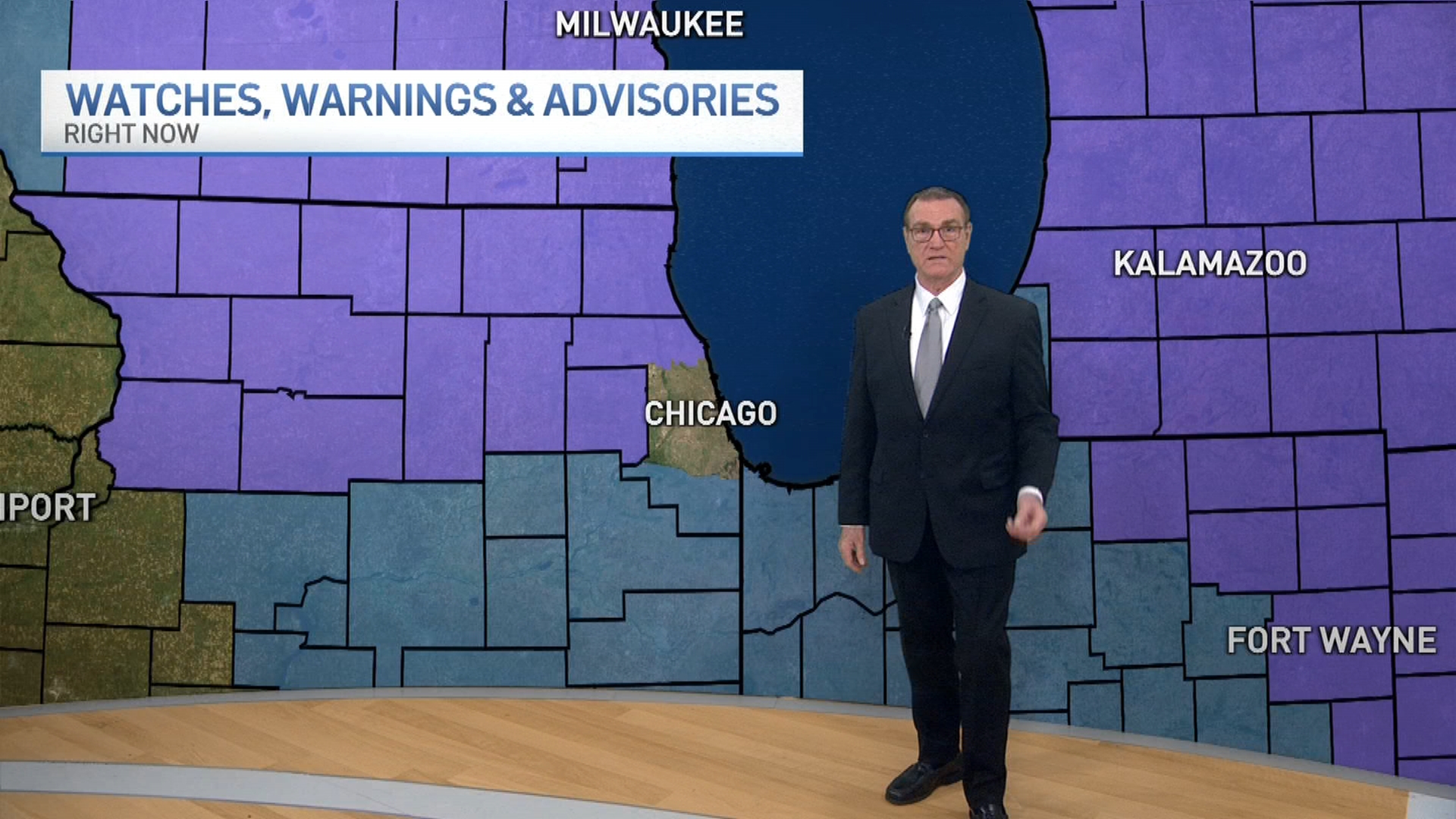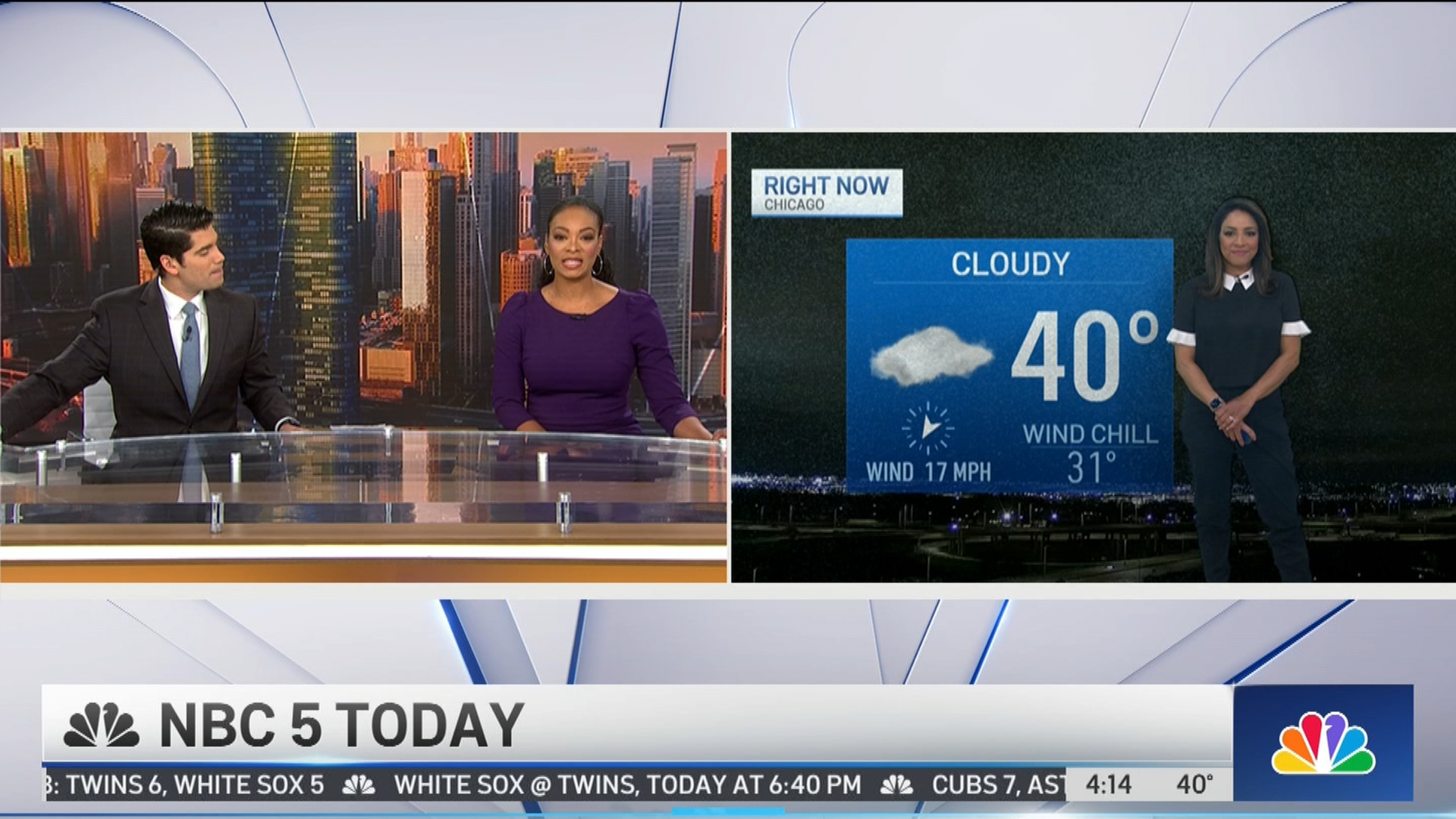If a tornado is approaching you, where is the safest place to go?
It depends on where you are.
Whether you're in a home with a basement, an apartment or a high-rise building, do you know where you should go?
With severe storms expected across the Chicago area, here's what you should know:
Feeling out of the loop? We'll catch you up on the Chicago news you need to know. Sign up for the weekly Chicago Catch-Up newsletter here.
In a House With a Basement
According to the NBC 5 Storm Team, the safest place is always a strong, interior room, like the center of your basement, away from windows.
In a House or Apartment Without a Basement
Weather
If you don't have a basement, a bathroom or other central interior room is another good option, as long as you can stay away from windows.
"Avoid windows. Go to the lowest floor, small center room (like a bathroom or closet), under a stairwell, or in an interior hallway with no windows," the National Weather Service recommends. "Crouch as low as possible to the floor, facing down; and cover your head with your hands. If you have a metal bath tub, that may offer a shell of partial protection, but not plastic or fiberglass ones, which are easily penetrated by projectiles. Even in an interior room, you should cover yourself with some sort of thick padding (mattress, blankets, etc.), to protect against falling debris in case the roof and ceiling fail. A helmet can offer some protection against head injury."
In a High-Rise or Office Building
For those in a high-rise building, go to an interior room or hall on the lowest floor, the NBC 5 Storm Team recommends.
"Go directly to an enclosed, windowless area in the center of the building -- away from glass and on the lowest floor possible," according to the NWS. "Then, crouch down and cover your head. Interior stairwells are usually good places to take shelter, and if not crowded, allow you to get to a lower level quickly. Stay off the elevators; you could be trapped in them if the power is lost."
In a Mobile Home
Get out!
"Even if your home is tied down, it is not as safe as an underground shelter or permanent, sturdy building. Go to one of those shelters, or to a nearby permanent structure, using your tornado evacuation plan," the NWS recommends. "Your plan could include staying with someone who is in a sturdy permanent structure, if a tornado threat is forecast. Most tornadoes can destroy even tied-down mobile homes; and it is best not to play the low odds that yours will make it."
On the Road
If you are in the car or outside during a tornado warning, "the best thing to do is to abandon your car," NBC 5 Meteorologist Alicia Roman says. "Find shelter immediately," or get low-laying in a ditch or a ravine.
Before you hit the road today, check the latest severe weather timeline. Will you be driving at that time? If so, prepare ahead of time. Make sure your phone is fully charged, and prepare an emergency driving kit. Tell family and friends ahead of time where you plan to be, the route you're taking and at time you'll be on the road.
Finally, make sure to cover your head.
The NWS also warns against seeking shelter under bridges as that can cause "deadly traffic hazards" and offers "little protection."
"There is no safe option when caught in a tornado in a car, just slightly less-dangerous ones," the NWS said. "If the tornado is visible, far away, and the traffic is light, you may be able to drive out of its path by moving at right angles to the tornado. Seek shelter in a sturdy building, or underground if possible. If you are caught by extreme winds or flying debris, park the car as quickly and safely as possible -- out of the traffic lanes. Stay in the car with the seat belt on. Put your head down below the windows; cover your head with your hands and a blanket, coat, or other cushion if possible. If you can safely get noticeably lower than the level of the roadway, leave your car and lie in that area, covering your head with your hands."
Have a Way to Receive Warnings
No matter where you are, it's critical you have a way to receive alerts for a possible storm.
Stay up-to-date on the forecast in your area by signing up for weather alerts through the NBC 5 app. This allows you to receive immediately get notified about watches warnings and advisories from the National Weather Service as they occur.
You can also check the track of the storms through the NBC 5 Storm Team radar on the app.



